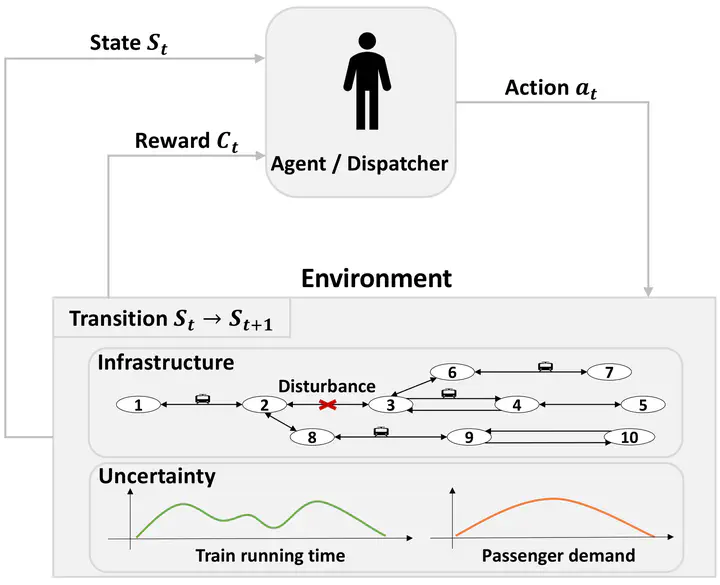
Abstract
Planning railway and metro systems includes the critical step of finding a schedule for the trains. Although buffer times and running supplements are added to the schedule to make operations re- silient to minor disturbances, they do not protect against all possible events that may lead to con- flicts during everyday operations. Thus, real-time train rescheduling models are needed to restore fea- sibility using actions such as retiming, reordering, rerouting, overtaking or cancelling of trains. Un- fortunately, despite many rescheduling models that have been developed in the literature, only a few can learn actions from past, simulated, or ongoing events and cope with disturbances and disruptions’ stochastic nature. However, the last decade’s ex- pansion of learning algorithms is gaining momen- tum in the train rescheduling literature by bring- ing novel and promising ideas. This paper aims to review the state-of-the-art learning algorithms ap- plied to the real-time railway and metro reschedul- ing, identifying challenges and opportunities while making a parallel with other areas where learning algorithms led to breakthroughs.